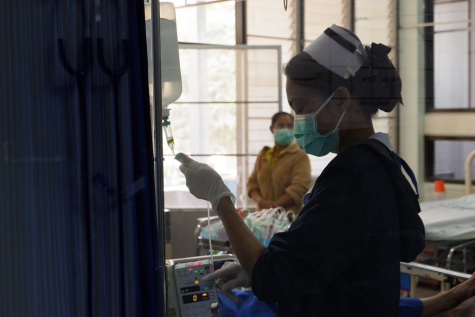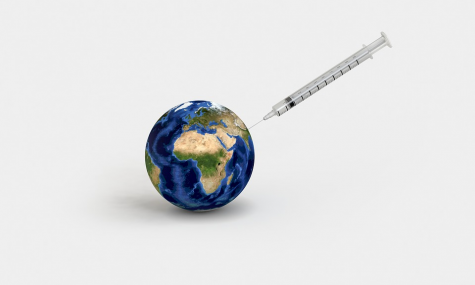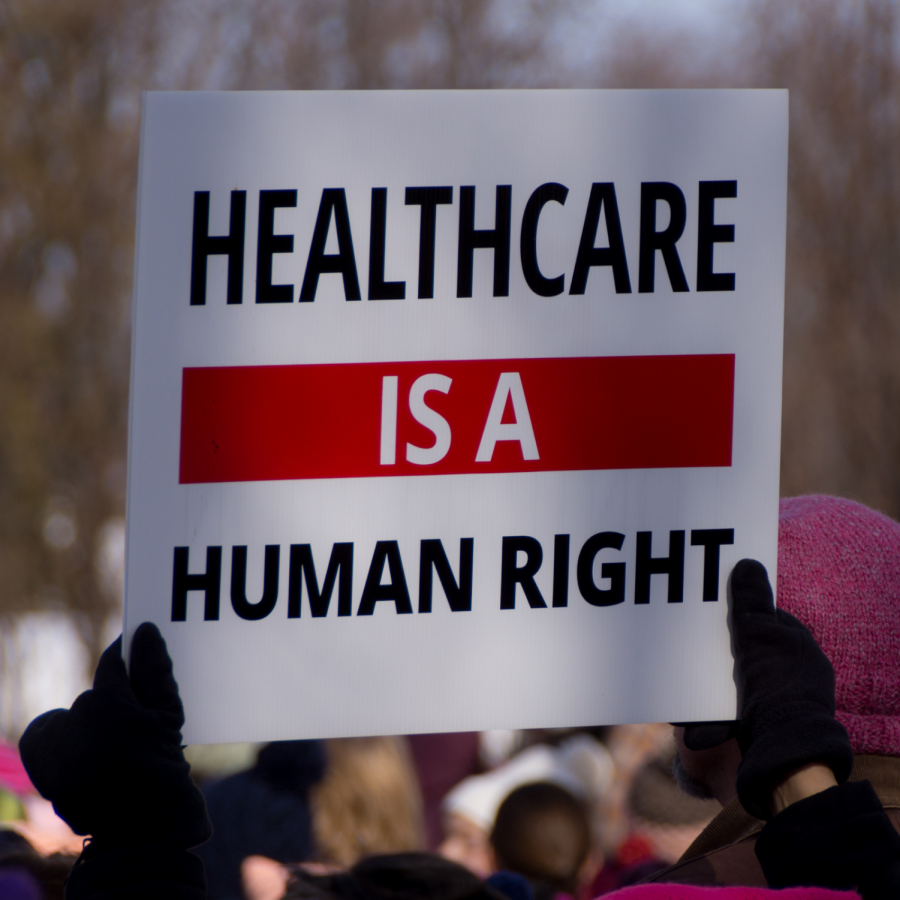The future of healthcare
American health care as we know it is continuing to increase at alarming rates. The number of uninsured citizens are peaking despite the enormous amounts of money being thrown into healthcare each year.
https://commons.wikimedia.org/wiki/File:Healthcare_is_a_human_right_-WomensMarch_-WomensMarch2018_-SenecaFalls_-NY_(28029120109).jpg
December 10, 2021
The American people are uninsured and unable to afford medical necessities. The current system does little to address and accompany low-income patients. Those financially struggling require attainable health care. Health care is a vital part of our lives and needs to be addressed as basic human rights. Universal health care is a viable solution to such a dilemma. The world health organization (WHO) envisions this with clarity stating, “Universal health coverage (UHC) is firmly based on the 1948 WHO constitution, that declares health a fundamental human right and commits to ensuring the highest attainable level of health for all.”
Currently, feasible healthcare is not accessible to all, numerous studies and interviews claim. As of recently a study held by the center for disease control (CDC) relays that, “In 2020, 31.6 million persons of all ages (9.7%) were uninsured at the time of interview.” This accounts for a significant chunk of American citizens, with nothing to rely on. Rehashing on statistics, the CDC states that, “In 2020, among adults aged 18–64, 13.9% were uninsured at the time of the interview, 20.5% had public coverage, and 67.5% had private health insurance coverage.” An overwhelming number of adults have no such reliance on public coverage, and many more are uninsured and unprotected. Private health insurance dominates the market and remains the leading source of overall coverage.

The shambles commonly referred to as the American healthcare system, are at its lowest. The U.S spending holds the top position as most spent. The reckless overspending does little to benefit the citizens as an enormous amount is privately spent. As phrased by Brookings.edu, “The United States spends more than other countries without obtaining better health outcomes.”
The U.S healthcare spending is vastly higher than those of other countries. According to Brookings.edu, America’s average spending is greater than that of the Organization for economic cooperation and development (OECD) average and neighboring countries. America’s average spending exceeds those of its peers, much of it made up of private health insurance. Brookings statistics accompany the notion above stating, “Almost all U.S. health care is privately provided, and 51 percent of spending is paid for by families, nonprofits, and businesses.” As previously stated, “Public spending by the United States (8.3 percent of GDP) is roughly similar to public spending by other countries; it is only when private spending is added that the United States far exceeds peer nations.”

Despite the U.S public spreading rates being close to those with universal healthcare, private spending remains the main source of health care coverage. Public spending accounts for less than half of healthcare expenses, yet still relatively similar to peer countries. The additional spending accumulated by private care increases the rates of the entire U.S spending. Furthermore, it raises the question, why is universal health care unattainable if the percentage of public spending is nearly identical to countries with universal health care in effect?
Universal healthcare benefits all regardless of financial status or other factors. The proposal would lift the lives of all American citizens. Universal healthcare would give those in poverty the opportunity to receive the help they need. The concept is both a gratifying and progressive approach to improved human rights. As stated by the WHO “… health is a fundamental human right and commits to ensuring the highest attainable level of health for all.” The peak of healthcare derives from accessibility. As we continuously seek to improve healthcare accessibility and rates of those insured, we’ll improve as a society and a people.


















